Why is it that whenever you buy a jigsaw with a piece missing, it is always the last piece? Weird.
Posted in Uncategorized | Leave a Comment »
Shameful though it is to admit to watching most reality TV shows, I don’t mind acknowledging that Beauty and the Geek exhibits a certain heart and humour, that The Amazing Race offers a frenetically entertaining travelogue (albeit a highly carbon-unfriendly one) and catalogue of hilariously rank stupidity, and that Project Runway is good for, er, seeing people making clothes but mostly for the presence and charm of the estimable Tim Gunn.
One that puzzles and disturbs me, though, is I’m a Celebrity … Get Me Out of Here. Let’s be honest, for a start it stretches the definition of “celebrity” to its elastic limit: D-listers on their way down looking for a new injection of fame, like botox for the career; and Z-listers seeking face-time and a presentation job on a reality show of their own. Television will eat itself.
Speaking of eating, this is the part that puzzles me: I have little objection to these ‘celebrities’ being forced to consume wombat turds or chew on a kangaroo’s testicles, aside from mourning the latter marsupial’s demise or wondering at its new role as a leaping eunuch. That’s part of their Faustian deal.
When it comes to the involvement of live animals, though, I wonder where and how the producers draw the line. We are supposed feel sympathy for, or more usually laugh derisively at, these wannabes as they are forced to lie in a coffin while rats are poured onto them, or wallow in a tank of water as snakes are dropped from on high, or wear a mask steadly filled with spiders, scorpions and spitting cochroaches. What high jinks!
But let’s look at it from the point of view of the unfortunate animals that are probably panicking at being hurled in their hundreds into the presence of some shrieking celeb. I don’t want to come over all PETA-like but what makes it acceptable for certain creatures with which we might feel uncomfortable to be treated thus? Rats might be disliked but they make delightful pets for some people, and are not unrelated to supposedly cuter rodents like guinea pigs.
So would the audience chuckle so wantonly if instead of rats our celebrity fools were rolling around in a box full of hamsters, or rather than snakes were squashing squirrels underfoot? Or the real test: showered by thousands of fluffy kittens and puppies?
I can imagine the squawks of protest from the hypocritical. But that would reality.
Posted in Uncategorized | 3 Comments »
[clearspring_widget title=”Fish” wid=”48cfe5b37f644537″ pid=”4acb6a915c8dea96″ width=”900″ height=”236″ domain=”widgets.clearspring.com”]
You may feed them, should it please you so to do.
Posted in Uncategorized | 4 Comments »
Work
* Pronunciation: \ˈwərk\
* Etymology: Middle English werk, work, from Old English werc, weorc; akin to Old High German werc work, Greek ergon, Avestan varəzem activity
1 : activity in which one exerts strength or faculties to do or perform something: a : sustained physical or mental effort to overcome obstacles and achieve an objective or result b : the labor, task, or duty that is one’s accustomed means of livelihood c : a specific task, duty, function, or assignment often being a part or phase of some larger activity d: that which gets in the way of other things one enjoys doing.
Definition ‘d’ applies here.
Hope you are all well, and have been during the past five weeks. Quite the hiatus.
Here’s a job that would be a whole lot easier: I don’t know how the crass and ridiculous TV game show “Deal or No Deal” (or “Do Deal or Don’t Deal”, as I prefer to call it) works in other countries; but in the UK version a cash offer is made after about three boxes have been opened, with the usual faux drama and “dramatic” — although I would say ponderous — pauses. The offer is emphasised, though, by a satisfyingly solid and solitary beat of a bass drum.
I want to be that drummer.

Inevitably, all sorts of superstitions, numerology and, let’s face it, stupidity have become attached to this show, with every contestant touchingly clinging to some “significant” set of numbers — birthdays, anniversaries, dog ages, that sort of thing — as if the universe, or even the producers, cared one jot.
Like the pandemic of an irritating but relatively harmless rash, this show has rapidly spread, and in various guises its boxes or briefcases now seem to be flapping open on-air in 192 countries around the world. This irrationality is common to all.
Here’s an example. Simon, keeper of Box 17, is asked by the contestant (Lori) if he has a “feeling” about what money his box contains. Instead of holding this question up to the ridcule it so richly deserves (“I haven’t got a bleedin’ clue, Lori; for I am invested neither with X-Ray vision nor clairvoyance. You credulous idiot”), he reponds thus:
Simon: “I don’t know if it’s a high number or a low one. It’s difficult to judge.”
Lori (nodding sagely): “Mmm. Yeah”.
Difficult to judge? Difficult to judge? Difficult to judge? It’s a sealed box, y’moron. Where does judgement come in precisely?
The presenter, Noel Edmonds (for it is he), chimes in:
Noel: “Are you going with Simon?”
Lori: “Yeah, Simon. Don’t let me down!”
Simon lifts his lid and reveals £250,000. Chagrin and unnecessary apologies all round. And a drum beat.
Lori, now looking for the 1p, turns to Des: “Des, you say you have it almost every three games…”
Des: “Yeah, that’s right”.
Because that’s how probabilities work, of course.
Just when I start to despair of humanity, I give up instead.
Posted in Television | Tagged deal or no deal, drum, numbers, superstition, work | 7 Comments »
I torture myself unnecessarily with choosing prize-winners for my dopey contests; ‘unnecessarily’ because obviously it’s not the Man Booker Prize, the Acadamy Awards or the Nobel Peace Prize yet I appreciate immensely the thought, effort, wit and panache involved every time. So while I might set these things to play around with I might avoid placing myself in these excrutiating judgemental positions.
Having said that, I do at least owe a final podium for Bargain Basement Part I and Part II. The quality was as high and heroic as ever; and to be honest I can’t slip a cigarette paper between Simon and The Imaginary Reviewer … please accept my humble offer of a Big Fish each. And for consistent excellence both here and at Bored Neoclassical Guy, a long overdue Splendid Award for Eric.
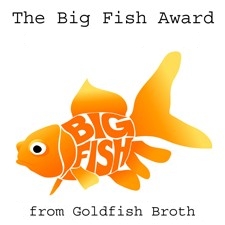
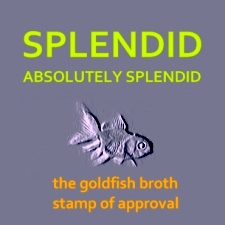
Now, back to frivolity today.
Don’t ask me why but I was watching one of those fashion design competitions. The remit in this particular episode was to design an outfit for a model and a matching ensemble for a pet dog — not, of course, a Bull Mastiff, or an Elk Hound, or a Doberman Pinscher (something that still bears at least a passing resemblance to its lupine ancestry); but one of those pocket-sized numbers that fits in a handbag or bicycle basket or haversack. The sort of pooch that might even get squeezed into a bottle or a vase for all I know.

What struck me and intrigued me more than the fashion, though, was the interchangeability of the names of the models and the dogs.
There is a theory called ‘nominative determinism’ which states that one’s name can go some way to dictating one’s choice of career and so forth. Clearly it does not always work, or my surname — Davenport — would consign me to life as a useful desk or a comfy sofa.
The lavatory ballcock was invented by a gentleman called Thomas Crapper. It is widely believed that he invented the flushing toilet itself and that his name was the root of the word ‘crap’ and ‘crapper’; but in fact those highly useful words preceded him. So perhaps his future was prenatally and preternaturally written in, er, well, you know.
The same theory accounts for the late Keith Moon’s little-known secondary career as an astronomer, and Dorothy Parker’s as a garage valet.
So perhaps an exotic name (or at least a canine-sounding name, wierdly) at birth steers some people towards a modelling career. As long as they are also tall, I suppose.
So here’s a mixed-up list of the names of the models and the dogs from that show — all genuine, and an equal number of each. The game (not contest!) is to decide which is model and which is dog:
Lyndsay; Toni; Pepito; Molly; Danielle; Chanel; Camilla; Clarissa; Sparkle; Morgan; Nazri; Jia; Lil’A; Marilinda; Carly; Sophia; Javi; Patty Cake; Talulah; Katia; Katie; Flex.

Carly? Toni? Pepito? Flex? C’m’ere, girl!
Posted in Fashion, Language, Pets | 12 Comments »
OK, no announcement just yet on the last contest. Instead, let’s for now take the premise of the literature challenge and head a short distance downmarket, into the area of popular television — specifically, for our first example, American cop and detective shows. Imagine how much more cheaply these productions could have been made:
Shoplifting, She Wrote
CSI Peoria
McMillan and Friend
Cagney
The Streets of Shawnee, Kansas
Diagnosis: Mugging
Skirting Jordan
Juvie Break
Rhode Island Five-O
Veronica Moon
The Rockford Notebook
Trespassing: Life on the Street
Aluminumside
Peashooter, P.I.
Starsky
12
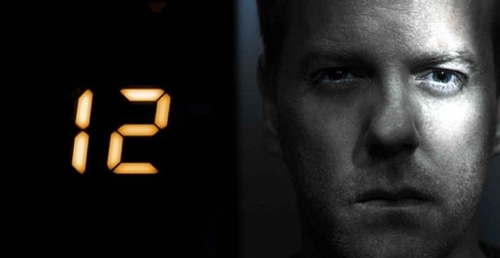
You might like to choose your own genre, such as, for instance:
Sci-Fi: Doctor When
Comedy: Acquaintances
Entertainment: Tasmania’s Got Talent
Go on; you know you want to.
Posted in Language, Television | 7 Comments »
First: the All New Horsemen of the Apocalypse competition winner. Thanks to everybody for your outstanding entries, and a compilation of the best would include at least one from everybody’s list. But this time I’ll do the whole tear-off-an-Elastoplast-quickly thing and just blurt it out.
Oh so close was our runner up, The Imaginary Reviewer, with the inclusion of equine-replacement transportation so nearly clinching it. A big hand, please, lazengennulmen. But the winner is tennyson ee hemingway. Take a bow, Sir, and your choice of award:
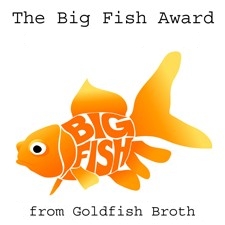
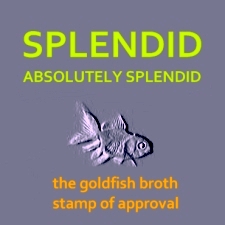
Now, given my indecisiveness I’m not sure why I do this but here we go again with another competition.
In these straitened times we are all looking for ways to cut corners, make ends meet, make do and mend, darn our own yoghurt and so forth. So I got to thinking (while stealing ever so slightly from “I’m Sorry I Haven’t a Clue”) about how some of the world’s great novels might have been more cheaply entitled. So here is a list of Credit Crunch Classics:
Lady Chatterley’s Brother D H Lawrence
The War of the Worms H G Wells
Fahrenheit 4 Ray Bradbury
The Perfectly Reasonable Gatsby F Scott Fitzgerald
For Whom the Kazoo Blows Ernest Hemingway
Atlas Raised an Eyebrow Ayn Rand
Squinting in Gaza Aldous Huxley
The Maltese Sparrow Dashiell Hammett
Zen and the Art of Mending a Puncture Robert M Pirsig
A Couple of Weeks of Solitude Gabriel García Márquez
Love in the Time of Feeling a Bit Under the Weather Gabriel García Márquez
Teatime’s Children Salman Rushdie
A Tale of One Village Charles Dickens (“It was the best of times. That’s it”)
À la Recherche du Cléfs Perdu Marcel Proust
The Gentle Breeze William Shakespeare
The Old Man and the Pond Ernest Hemingway
Paradise Mislaid. Down the Back of the Sofa, Perhaps John Milton
The Lord of the Brooch J R R Tolkien
On the Sidewalk Jack Kerouac
Catch 2.0 Joseph Heller
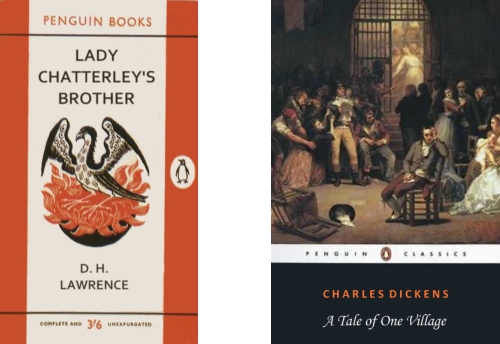
You are charged with the task, should it please you so to do, of adding your own. Enjoy!
Posted in Books, Language | 13 Comments »
Given that the last post was lengthy to say the least, let’s take a breather today. A sorbet between stodgier courses, if you like.
Mind you, I’m not sure how light, fluffy and refreshing a paragraph or two about Goths is going to be.
I don’t generally associate Goths with interior design but that’s very narrow-minded of me. I should imagine they cheerily wield a roller, brush and paint thinners along with the best of us. Well, perhaps not cheerily. And I imagine not with a tin of Magnolia satin or Pale Aubergine eggshell.
Here’s an appropriately moody bedroom design that’s fetched up in ‘The Sims’:

It’s the “Gothic Teen Angel Bedroom”. Perfect for that Gothic Teen Angel in your life. Nice and sombre, isn’t it?
Here’s a black-and-blood-red number that would fulfill its underworldly brief if it were not for one thing. Can you spot what it is?

That’s right — too much light. There are windows, for goodness’ sake, affording a generous view of a perfectly agreeable looking balcony and garden. Even if that is a mist of drizzle I espy, the atmosphere is nowhere near sufficiently chthonic.
To achieve an appropriate level of stygian gloom, we need those curtains dragged across. Or how about a tasteful pair like this? Spotted on ebay:

A perfect combination of red, black and grey, and of grinning skulls and corrupted roses. They are, of course, The Drapes of Goth.
Come on, you knew that was coming.
Posted in Fashion, Interior design | Tagged decor, Goths, Interior design | 10 Comments »
Advisory: Look out — here follows stuff about cricket and cremation.
Sport serves as a metaphor, even a proxy, for myriad rivalries: nation against nation, city against city, suburb against suburb. In soccer/football — let’s call it soccerball for convenience — just look at the genuine enmity that lies between FC Barcelona and Réal Madrid, and the mutual hatred shared by Manchester United and Liverpool; or at intra-city level there’s United and City, who both claim the sobriquet ‘Manchester’s team’. For sectarian spice (and some tasty violence, let’s face it) look no farther than Glasgow Celtic and Glasgow Rangers.
Baseball has the Yankees and the Red Sox, the Yankees and the Mets, the Cubs and the White Sox, and the Dodgers and … well, everybody. Nobody likes the Dodgers, right?
I don’t know all that much about Aussie Rules Football, but I’m given to understand that Carlton and Collingwood share, shall we say, a similarly keen sense of competition.
At international level, the apotheosis of the perennial love-hate relationship between England and Australia is The Ashes, the third match of the 2009 series of which begins on Thursday this week. At which point I should point cricket neophytes towards an explanation: Wikipedia will do for now.
Suffice to say, The Ashes is a quasi-biennial series of five matches of five-day cricket spread across the summer, alternating between Blighty and the Antipodes, that has been fought over since 1882, and which serves, even in these less-romantic and more hard-nosed professional times, to define those summers. To make a facile comparison, it’s like an elasticated seven-week World Series. But with tea and cakes.
How this cricket series came by its name has been discussed to the point of tedium. But this is cricket after all; you’re supposed to be bored, people seem to think. So I’ll run through it again, point by point.
- When Australia visited England in 1882, they arrived for the second Test at The Oval, London, having not won any of the eight matches the two nations had thus far contested.
- An act of chicanery by W. G. Grace lit such a rocket of righteous indignation under the Australians that it propelled them to a remarkable victory. Dr William Gilbert Grace was the best cricketer of his age and for a good while after: “a portly all-rounder”, according to Simon Briggs in The Daily Telegraph, “who shared a beard with Rasputin and a moral code with Al Capone.” He might have invented both gamesmanship and sporting celebrity.

- So fired up was the Australian fast-bowler Frederick ‘The Demon’ Spofforth (I kid you not) by the Doctor’s underhandedness that he took seven wickets for just 44 runs, and Australia won by a meagre six runs — to the shame and chagrin of the nation, the England team and its unfortunate captain A.N. ‘Monkey’ Hornby (really). Such was the tension in the closing minutes that one spectator keeled over with a fatal heart attack while another chewed clean through the handle of his bumbershoot.
- Reginald Shirley Brooks — journalist, boulevardier, flâneur, bon viveur, lothario, gambler and man-whose-middle-name-was-Shirley — felt moved to publish this now infamous mock obituary in The Sporting Times:

- A few months later the England team sailed to Australia to take up the cudgels once again. This time they were without W.G. Grace, who it might reasonably be assumed was omitted for fear of his bulk capsizing the ship or his extravagant beard fouling the propellor.
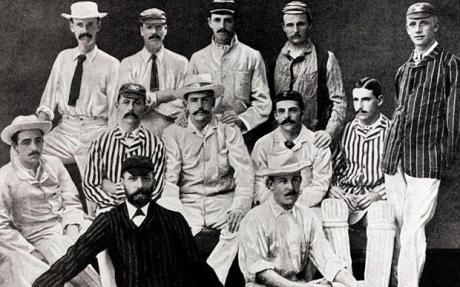
It seems that they took a splendid array of moustaches, though, and also the Honourable Ivo ‘Lemur’ Bligh (later 8th Earl of Darnby) as the new captain. Of the cricket team, not the ship.
And I made up the ‘Lemur’ part.
- On arrival, Bligh announced “We have come to beard the kangaroo in his den, and to try to recover those ashes” (which they did) thus cementing the term in in the popular imagination (without the capital ‘A’ just yet). Presumably, though, forced marsupial facial hair never caught on.
During the tour, the Hon. I. Bligh fell for a music teacher called Florence Morphy, and she for him. So besotted was she that at a Christmas party she mischievously presented Bligh with a tiny perfume jar filled with real ashes which became and remains the manifestation of the whole metaphorical conceit.
Oh, and they got married the following year.

Here we have your Ashes ‘trophy’, Ricky ‘Punter’ Ponting (Australia) brandishing it, and Andrew ‘Fred’ Flintoff (England) desiring it.
The gentlemen are not giants: it really is that tiny. But that’s not the original, I have to confess, which never leaves the display case at Lord’s, the home of cricket. The ashes contained in that wee jar (which came to be renamed ‘the urn’, for a more Olympian and hairy image) are supposed to comprise, depending on who you believe, the burnt remnants of either a ball or a bail or a stump or a veil or, god help us, an Aborigine.
Most likely they are nothing of the sort and were just sweepings from the grate, or the mortal remains of one of Florence’s lacy lavender-soaked handkerchiefs.
So that’s the outline of the story of The Ashes as briefly as I can sketch it. Which is still pretty lengthy but does not even scratch the surface of more than a century of drama, intrigue, sporting heroism, athleticism, stoicism, bravery, diplomatic incidents, blood, moustaches and cake.
But there is one twist to the original Ashes gag that is often overlooked or not even known. A subtly macabre and satirical political point was being scored, which would have been obvious at the time but which soon became lost amidst the romanticism and mythology of the contest itself.
In the late 19th century the practice of human cremation was illegal. The father of Reginald Brooks, author of that sardonic obituary to English cricket, was Shirley Brooks (from whom Reginald bequeathed his middle name) who was also a journalist (and author and playwright). He became editor of the satirical magazine Punch but was also a fervent campaigner for the right to cremate.
Shirley Brooks helped to found the Cremation Society of England, which included amongst its membership such luminaries as Anthony Trollope. The Society issued a Declaration that began “We the undersigned disapprove the current custom of burying the dead, and we desire to substitute some mode which shall rapidly resolve the body into its component elements.” Apart from anything else, they reckoned that those ‘component elements’ would make splendid fertilizer.
Before sufficient pressure and opinion could be brought to bear on Parliament, however, Brooks Sr. died and was buried not burned.

The Australian cricket team arrived in 1882, just as a Captain Hanham from Dorset was asking for the Society to help him cremate two family members. The government said ‘no’ but he went ahead anyway, building his own crematorium, if you please, and avoided prosecution.
Frustrated at not having been able to fulfill his father’s wishes in the same way, Reginald Brooks grasped the opportunity to make his point in print while simultaneously deriding the national sport. To which I say: “Neat, huh?”
The combatants resuming hostilities on Thursday in the soggy English Midlands will mostly be unaware of this darker motif. Quite right, too. They need just concentrate on hurling that hard red ball at each other with extreme prejudice.

Posted in History, Language, Sport | Tagged Ashes, Australia, Cricket, England, Ivo Bligh, Reginald Brooks, W G Grace | 14 Comments »

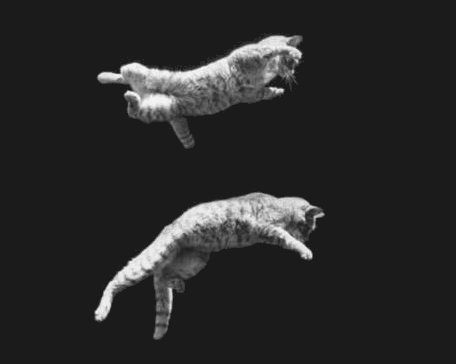







 Thanks to
Thanks to